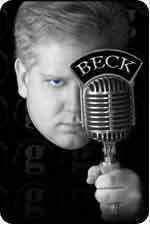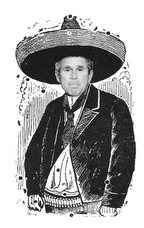BUST TOWN
By Bob Whitby
If you read the Orlando Sentinel Sunday, Aug. 26, you know that the condo market is dead. If you’re sentient, you already knew it was dead, but the Sentinel is nothing if not oblivious and slow.
Anyway, the biggest groaner in the article by Jason Garcia wasn’t the stunningly obvious conclusion; it was the twisted internal logic that left this reader, at least, scratching his noggin. Here is Garcia’s paraphrasing some of his sources on just how crappy the condo market really is at the moment: “Many developers say the condo market has fallen so precipitously that the true danger now lies with the handful of still-incomplete towers that have already passed the point of no return.”
In other words, there is no market. There never was, really, because few people ever bought condos in downtown Orlando with the intention of one day living in them. They bought them to flip and make a quick buck, which undermines any intrinsic value they had as housing. This is the house of cards that Orlando’s entire downtown renaissance is built on, those pricey venues included, and the people who have already started construction on huge condo towers are in shark-infested waters. Or are they?
Here’s where things get weird. A few paragraphs later, Garcia quotes developers representing three huge, almost finished downtown condo buildings – the Vue at Lake Eola, Paramount and 55 West – saying sales are inexplicably fab at their unfinished projects. According to the developers themselves – who would never stretch the truth to move product – there are just 30 units unsold at the Vue; the Paramount is 98 percent spoken for and over at 55 West fully 75 percent of the units are gone. Demand is strong, so you’d better hurry if you want a condo in downtown Orlando!
The story so far: There is no condo market, except for the three huge developments about to come on line, which are selling at a very brisk pace, according to the people with a financial stake in them.
What’s really disappointing is that higher in the story, Garcia did some digging and found that of the 300 units at the recently completed Solaire at the Plaza, only 75 were owner-occupied, by dint of the fact that people actually get their mail there. What that says is that gauging the depth of the downtown Orlando condo bust is doable, and the Sentinel knows how.
But here’s betting they won’t, because it’s easier to call a developer and get a quote than to do the digging and find out that the myth of a hip, urbane 24/7 city – a narrative the Sentinel helped to write with its unquestioning, developer-friendly reporting back in the condo boom days – is on hold.
Back in the day, the Sentinel seemingly never met a developer they didn’t trust. Those were heady days of condos being snapped up by young hipster professionals who were going to change sleepy, boarded-up downtown Orlando into something like Austin or Atlanta, a happenin’ place full of happenin’ people making deals and drinking lattes. The paper wrote stories about “The young guns of Orlando” [Aug. 10, 2004] who were tired of downtown’s hidebound ways and were not going to take it anymore. They wrote stories about people snapping up condos as fast as they went on sale that relied almost wholly on anecdotal evidence and the word of developers who couldn’t say enough good things about the red-hot market. (See “Condo A-Go-Go, young professionals are buying up condominiums in downtown Orlando as fast as they go on sale,” May 29, 2004, for a particularly egregious example.) It all seemed so exciting then.
What the paper didn’t do was think about whether or not Orlando could ever generate enough high-paying jobs to allow its young working class to buy $300,000 condos. And the Sentinel was pretty much blind to the fact that neither retiring boomers nor young professionals ever bought downtown condos in significant numbers. The former found better places to spend their money and the latter simply couldn’t afford to live here.
Instead, investors fueled the condo market for its short boom cycle. And when the profits stopped coming in, it became obvious that the market wasn’t there in the first place – at least to everyone but the Sentinel.
Watch for more stories in the daily about the condo crash, now that it’s so obvious you nearly have to dodge people jumping off their balconies trying to get out of their condo contracts.
slug@orlandoweekly.com
 Racism should, at all times, be condemned. However, the black students are (no longer) the victims in this case. They turned themselves from victims into aggressors and they should be punished for it. Was it an attempt to murder the victim? I don’t know, it’s not likely. Second degree battery? Quite more likely.
Racism should, at all times, be condemned. However, the black students are (no longer) the victims in this case. They turned themselves from victims into aggressors and they should be punished for it. Was it an attempt to murder the victim? I don’t know, it’s not likely. Second degree battery? Quite more likely. *CLICK TO ENLARGE
*CLICK TO ENLARGE



























